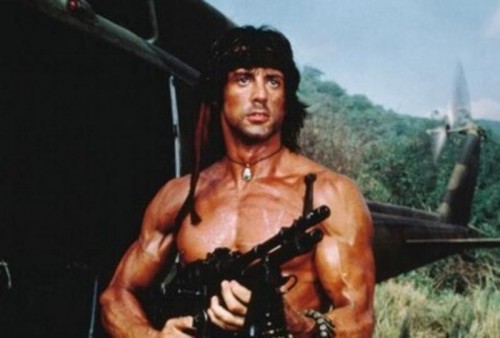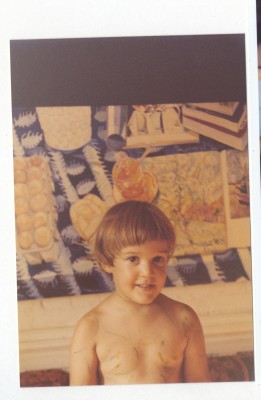I REMEMBER THE first time I fell.
I was a small person with eyes peeking up at my parent’s knees. I’d just learned about staying upright.
It was a time in the 1970s when people decorated their houses with butterfly chairs.
I knew the word ‘butterfly’ because I’d been taught some of the intricacy of their genealogies by my grandparents at the botanic gardens. The glistening stained-glass of their pinned-up wings reminded me of the paintings my mother made.
When I saw my father, I scrambled, then squealed, then fell from the butterfly chair, hitting my temporal bone against the keen-edged corner of the glass coffee table, slicing open the puffy skin near my left eye. There were jets of something spilling, sleek and brown, to the parquet floor. Someone waved their hands.
My father usually picked me up on Saturday mornings.
There was a kind of mobility to things in those days, a new dynamic to banknote and stock portfolio, and my father was busy. The tradition was for him to pick me up from my mother’s and leave me with his new wife’s parents watching cartoons in the straw wilderness of central Brooklyn until nap-time. They were usually drunk by then, on the verge of knifing each other to death.
The second time I fell may not have been an accident.
What I mean is, looking back, through an overlay of dream and memory, parting the curtains so to speak, I can’t be sure I tripped. I can’t be sure I didn’t throw myself down those stairs.
They were covered with carpeting. A kind of ruddy green wool. I remember the curves and twangs of its curls and ovals. The maze of them spearing this way and that like seaweed and sea creatures under the breath and the loom of the bobbing waves. Then we were in the kitchen and everyone was screaming. Breathing loud from their nose-holes. There was a stench, and when I put my hand to my head it was wet. Someone saw, Roscoe or Juanita, and dragged the hand away. Something released and it was wonderful. I could see the white rockets. The air was on fire with them. Then the black clouds came back. And there was more screaming.
The doctors and nurses were smiling as metal things danced around the room and they set me down under a plastic sheet where everything was a heavy green like old skullcaps and wrinkled hospital scrubs.
It turned out I had cracked my skull. They had to shave the back of my head and put in stitches. There is a spot where hair never grows.
Recently, the back of my head was filmed for television and you could just make it out. A gentle little place, pale and sensitive oasis.
My mother would always get mad at me if I called her, or any other woman, a ‘lady.’
She told me one afternoon in spring, when we were feeding a swarm of geese at the Prospect Park Lake, that a ‘lady’ was someone who wore long white gloves and wide-brimmed hats and ate cucumber sandwiches with her tea.
I remember those geese. How loud and vain they were. How pale the napes and vertebra of their gentle feathered necks.
The third time I fell I was playing Batman in my mother’s new house on Underhill Avenue, where the stairs were studded with brass and tin. I must have tripped on the sheet I was using as a cape. A dark sheet, I think.
My mother and a swarm of her book club friends took me to the hospital. A few more railroad stitches to the flesh of my scalp and I was done. Unfortunately, they never x-rayed or they’d have noticed I broke my jaw. I wouldn’t know until I was fifteen or so why my ears always hurt and popped like sticks cracking when I chewed.
I remember my father’s shoes crushing over the rusty leaves when he picked me up from the hospital. As consolation, he took me to see Rambo: First Blood Part II at the old Loews in the Fulton Mall.
Everything I learned about being a man I learned from my father in the dark of those Rambo movies. By them, the man was a thing like a lone wolf who knew only the smell of upstiffed fur, cold bloody steel, and euthanasia. By them, the man was a one-man army. Cursed it seemed, like Tantalus at Tartarus, to scour the jungles, dragging himself along the bombed-out gunboat rivers and opiated brothels of Khe Sanh and Da Nang for his POW brothers. But never find them. Nor the white-maned, eager, champing faces of his wolf cub brothers. And as John Rambo sprayed the beach full of wretched, nameless, third-world cronies, I’d turn to see my father taking off his glasses and sighing. Sometimes in the blackness he would simply shut his eyes. I didn’t know where to plant my attention. At the rocket launcher as it turned the helicopter into a falling snow of cable and flesh? Or the fear in my father’s eyes under the mirrors of his glasses as he saw just how well, how nicely Rambo and I were getting along in the dark.
What is this thing called anger that I was always walking through it somehow and never knew it was there?
Is it you I see when I shut my eyes? Whose iterations I was afraid to know, when I smashed that window and tried to sever the veins on my wrist? Is it you who sat by my side when I tried to stab my new stepbrother with a pocket knife?
It was you who always welcomed me when there was no one else.
My mother told me once that the library at Byzantium remained mostly intact, despite dozens of fires, until 1204 when the knights of the Fourth Crusade sacked the city and burned or sold off all the books. She was making a painting of a stained-glass butterfly.
The fourth time I fell it was my father’s new wife kicking me to the floor.
Her son and I were trying to open a bag of potato chips and they all fell out from the bottom end. There was some slime and some brightness on the carpet. I think it was forest-green. The wall was white, certainly. I remember its coolness, feeling that, on the side of my face, when she threw me down. And the off-white soles of her sneakers. Like secret flesh. As she kicked us into the wall.
I wonder when it was exactly that I decided the only way to get by was to lie and cheat and do other things that are not as easy to think away?
Was it just to get by okay inside those early places of death? That brought out the darkness? To say I’m fine and run along towards the wrappered calls from the fancy ball field? It’s a wonder I never learned anger was a thing you could spray at others. With a rocket launcher, sure, or disguised as something softer. Like strawberries and rainwater.
So it comes with a nice smell until it gets all rolled up inside you.
My mother’s idea of how a man should be was William Dean Howells. Or Hawthorne in his later years as an ambassador. Strolling the morning streets of Mediterranean cities. Peering out of windows onto nameless public squares with a glass of sherry. Equally at home discussing the solids in Uccello as the library at Byzantium. Something, I suppose, like the narrator of Joseph Brodsky’s essay about Venice.
The last time I fell I was in college.
I was trying to learn to drink like a gentleman, but spent most of my time instead showing off my ignorance of everything to strangers at parties until I got bitter-drunk, suspected them of caring for me, and snuck off on my own. Unreality was once more part of the problem as I found myself alone in a room with a mini bar, fixing myself drinks until I passed out alone. I caught a bud of skin by my eye on the corner of the bar on the way down and lay there for hours in a cold pool of the red stuff.
I had butterflies in my stomach in the taxi home from the hospital, wondering how to explain my rump-steak face to my mother. I remember how fucked the roadway looked outside the window. The ripped-up tenements of some red-baked town in New Jersey.
When I was fifteen, I interned at the Poetry Society of America in a high corner of the National Arts Club building. My first day, learning the switchboards, I hung up on Joseph Brodsky by mistake.
They were reproachful but not too reproachful. I was a brooding teenager after all, writing my own poetry in the smooth silver afternoons, getting high in the fresh winds. Words came to me so easily then in those days when I still had the key and the key was still mine. Filling pages with idle cursive trails. Things I didn’t know I knew. Night to night. Bent over my open notebook.
Later when the words stopped coming, by way of nervousness, by phalanx of anxiety, fear of being nothing winking in and out like poor stars, I began to steal.
And that solved the problem like a newspaper on the roof stops the rain.
Now that everyone knows I was a thief, I can write what I want again, but even now I find myself vomiting with the tension of finding the right word, digging for treasure in the stink of the bog while outside the world rattles on, children swarming like geese, nuzzling their mother’s temples with butterfly kisses, laughing at my uselessness, while I in my search, rage and fall like a bull with rings around its eyes, stuck in a china shop with stained glass from Murano. Or Venice.
Like Rambo in Byzantium.




